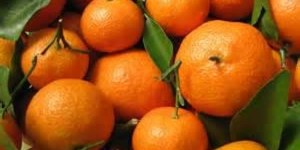
By Clint Thompson
Georgia growers interested in adding citrus to their farming operation are invited to the fourth annual Georgia Citrus Association Conference on Monday, Feb. 24, at the University of Georgia (UGA) Tifton Campus Conference Center.
Scientists from UGA and the University of Florida, as well as producers who are already growing citrus trees, will be in attendance to discuss citrus production in Georgia.
Georgia Citrus Association President Lindy Savelle said anyone from homeowners to commercial growers to commercial buyers are invited to attend.
“This is our fourth annual Georgia Citrus Association conference, and every year it continues to grow. Starting out, we had about 278 attendees at the first conference, and every year it gets bigger and bigger,” Savelle said. “We anticipate we’ll go over the 400-person attendee mark this year. We expect to have a lot more vendors.” Approximately 50 vendors will be in attendance, including fertilizer companies, irrigation companies, association management companies and more.
“It’s just amazing how this industry is starting to really take off,” said Savelle.
She estimated there were around 1,000 acres of citrus produced in Georgia at the end of 2019 and believes that acreage could double to 2,000 acres by the end of this year. Because citrus is sensitive to freezing temperatures in the winter, most of Georgia’s citrus acreage is concentrated in the southern part of the state.
Savelle also estimated that approximately 85 percent of the state’s citrus plantings are satsuma oranges. Satsumas are a cold-tolerant citrus but can only withstand temperatures as low as 15 degrees. They’re also seedless and easy to peel. In addition to satsumas, Georgia growers are starting to produce a variety of citrus, such as navels, grapefruit, lemons and mandarins.
“What we’re seeing is a little shift in that from people who are starting to diversify, because satsuma is a zipper peel; it only has a short window of opportunity to be picked and sold. After that, it’s gone. It’s not a forgiving fruit on the tree,” Savelle said. “We’re seeing some growers who’d like to have a longer picking season and have more diversity in the field.”
The Georgia Citrus Association is offering free membership to the association for UGA employees. For more information about Georgia citrus or to register for the conference in February, see www.squeezethedayga.com.









